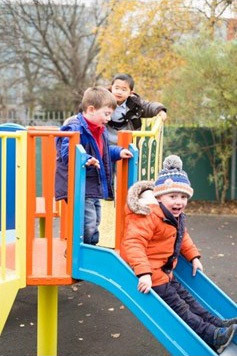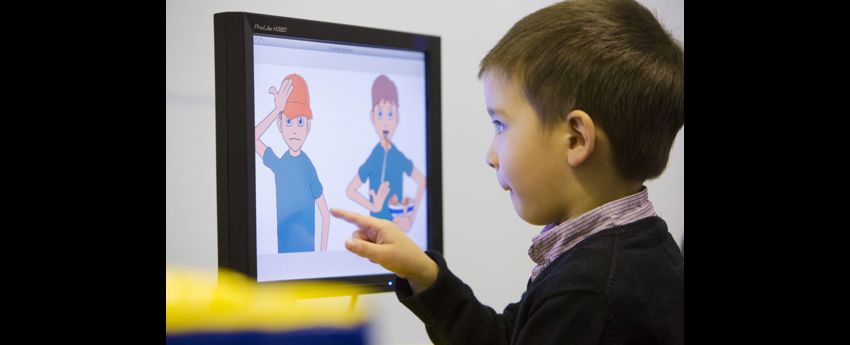What We Do
 Our mission is to bring about a step change in the understanding of how children learn to communicate with language, and deliver the evidence base necessary to design effective interventions in early years’ education and healthcare.
Our mission is to bring about a step change in the understanding of how children learn to communicate with language, and deliver the evidence base necessary to design effective interventions in early years’ education and healthcare.
Children who enter school with good language skills have better chances in school, better chances of entering higher education and better economic success in adulthood1. The UK's most disadvantaged children can be as many as 19 months behind their more affluent peers in vocabulary development on school entry2. Boosting language and communicative development in the early years is key to improving these children's life chances. LuCiD is working to transform understanding of how children learn to communicate with language, to provide parents, practitioners and policy-makers with the information, advice and technologies they need to support children's language development.
Our work
The main aspects to LuCiD's work are:
- Research into how children learn to communicate with language
- Technology development to support language researchers, health and education professionals and parents to understand children's language learning
- Capacity building for language acquisition research
- Communication of our findings with those who need them the most
Where does LuCiD work?
We carry out the majority of our research in the North-West of England at our child study centres in Lancaster, Liverpool and Manchester. We are supported by partners from Europe, the US and Australia.
1 Blanden, J. (2006). Bucking the trend: What enables those who are disadvantage in childhood to succeed later in life? London: Department of Work and Pensions.
2 The Sutton Trust (2012). Social Mobility and education gaps in the four major Anglophone countries. Report of the The Sutton Trust / Carnegie Social Mobility Summit held at the Royal Society.

